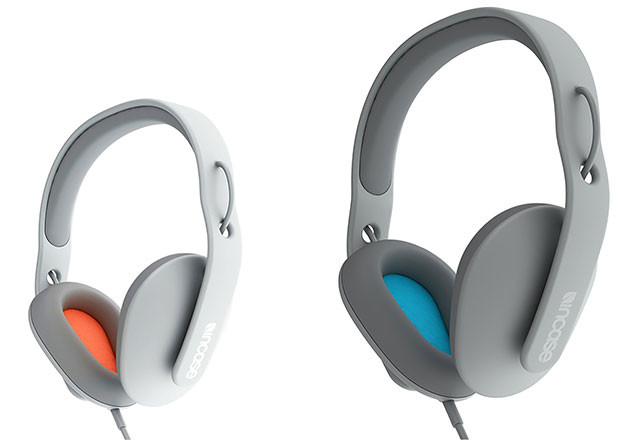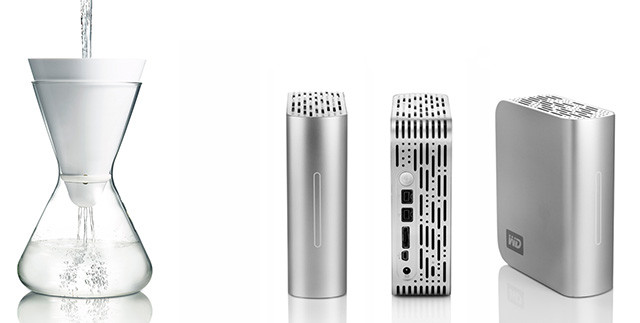Humanize, think beyond, zero in
“Design can be a general human skill to identify challenges.”
Markus Diebel has developed a truly interdisciplinary approach to everything he invents and produces. The stages of his career have all added up to a holistic method that make him one of the highly original and influential minds in design. He embraces every single step of finding, sketching and substantiating an idea, bringing it to production and finding an audience and market.
Markus Diebel has founded various renowned platforms and companies for innovative design. A holder of over 60 U.S. patents and the recipient of international design awards from industry leaders such as the Industrial Designers Society of America (IDSA) and I.D. Magazine, Markus Diebel amassed a portfolio of outstanding achievements with companies like IDEO or his signature projects Incase and moreless. He co-founded the art-design group Design Raw and works as a teacher and mentor for the ID department at CCA San Francisco. Since 2015, Markus Diebel has been working for Apple.

Markus Diebel has been a mentor and has led interdisciplinary groups in various constellations, sharing his knowledge, passion and experience with emerging designers. His wide range of abilities and deep interest in sustainable processes of collaboration make him an intriguing personality for the Forecast team.

Freo Majer in conversation with Markus Diebel
Have you had any experience with mentoring before?
I have led various workshops and have other teaching experience in different countries including Korea, Japan, America and Germany. Throughout my career, I have set up holistic design teams with varied backgrounds. Mentoring has always been a very promising and inspiring experience for me.
Is there something that mentoring can achieve that other techniques could not? Do you think that there is something special or particular about mentoring?
I think through a common interest, we create a relationship on a common basis that is very sensitive. A common interest creates a common goal, a common result. And you collaborate, you work together proactively to achieve that common result. That makes mentoring pretty easy, because you’re working on the same thing. You’re sitting in the same boat, so to speak.
How do you think young designers could benefit from being your mentees? What might they achieve?
My focus is on generating a holistic point of view on design, setting out with the idea, its development, its materialization and continuing with ways to get it into production, to manufacturing, to selling. And then ending with its recycling, constituting a truly sustainable product.
Being mentored by me means being part of a complete design experience.
What expectations do you have regarding mentoring applied to the discipline of design?
I consider design a basic technique or method that we can and actually should apply to our lives holistically. Design can be a profession, even a general human skill to identify challenges. It finds new instruments, surprising forms and groundbreaking solutions and finally brings them to life. To me, everything is design. Any decision, any step that leads us forward, is design. It can give human beings a better experience, every day of our lives.
Are there any principles applicants should know about? That you consider important?
In my career, I developed three principles that guide my way: The first one is called “humanize”. I always try to humanize my designs, to make them intuitive and emotional at the same time, thus forming an invisible space between the human and the product. The second principle is called “think beyond”: It is all about the benefits of innovation. The third is called “zero in”, which is about both taking a point of view and focussing. It is important to apply all these principles and engage with them and have them work in harmony. Everyone of us has principles that guide our lives, our way of thinking. It is so important to be very clear about them and to keep re-focussing on them every single day of our work-lifes.
Is there something that you yourself would like to take out of this process?
My main interest is to engage in new projects, new technologies, new people, new challenges. I would love to get inspired by these new influences, they may help me develop further, discover new ways to express myself and find solutions.
What is so different about your profession?
We connect the dots, we work between traditional craftsmanship and modern technology, we constantly question the now to create the new. We need solitude, but also many others to validate our ideas and help bring them to life. We’re in love with details, yet we have a bird’s eye view. We somehow live in between things, sensitive and bold.
Watch the Keynote Presentation by Joe Tan and Markus Diebel at Bold Symposium at Art Center College of Design.